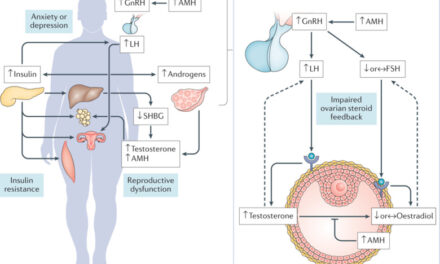The recent outbreak of the H5N1 bird flu has caused significant disruptions in the poultry industry, leading to a nationwide egg shortage and rising prices. Millions of egg-laying chickens have been culled to prevent the spread of the virus, impacting supply chains and grocery store shelves. Additionally, health officials have confirmed cases of H5N1 in wild birds, dairy cattle, and even a small number of humans, raising concerns about public health risks.
Mary Jo Trepka, an epidemiologist and chair at the FIU Robert Stempel College of Public Health & Social Work, discusses the potential dangers of bird flu and how the public can stay safe amid the ongoing outbreak.
How Concerned Should We Be?
Bird flu in humans remains rare, but it is not unheard of. According to Trepka, the virus primarily affects poultry, wild birds, and cattle, with only sporadic cases of human infection reported. So far, 67 individuals in the U.S. have contracted bird flu from infected animals.
“We have not yet seen sustained human-to-human transmission,” says Trepka. “For that to happen, the virus would need to mutate into a strain that spreads easily between people. While this is a possibility, we have not reached that point yet. However, public health officials must remain vigilant and monitor for any signs of such a mutation. If it occurs, it could lead to a pandemic.”
Are Eggs Safe to Eat?
Despite the outbreak, health experts affirm that properly cooked eggs and poultry are safe to consume. The main concern remains foodborne illnesses such as Salmonella and Campylobacter, which can arise from consuming undercooked eggs or poultry.
Trepk advises the public to handle raw eggs and poultry with care:
- Wash hands with soap and water for at least 20 seconds after handling raw eggs.
- Sanitize surfaces that come into contact with raw poultry or eggs.
- Cook eggs thoroughly to kill potential pathogens.
- Avoid consuming raw or undercooked eggs.
Additionally, raw milk has been found to contain the bird flu virus, emphasizing the importance of drinking only pasteurized milk to avoid potential health risks.
Who Is at Risk?
At this stage, the primary concern is for those in close contact with infected birds and cattle. High-risk groups include:
- Poultry and cattle farmworkers
- Veterinarians handling infected animals
- Hunters who come into direct contact with wild birds
While the general public is at a much lower risk, officials urge individuals to take precautions when handling raw poultry and eggs to prevent common foodborne illnesses.
Recognizing Symptoms of Bird Flu
Bird flu symptoms in humans closely resemble those of seasonal flu, with additional signs such as conjunctivitis (pink eye). Common symptoms include:
- Fever
- Cough
- Sore throat
- Fatigue
If experiencing flu-like symptoms, individuals—especially those in high-risk occupations—should seek medical attention. Although bird flu remains rare in humans, it is essential to monitor symptoms and practice good hygiene.
Is There a Vaccine for Bird Flu?
Currently, there is no widely available vaccine for bird flu in humans. However, the CDC has developed candidate vaccine viruses as part of pandemic preparedness efforts. If a strain develops the ability to spread efficiently among humans, scientists will need to create a vaccine specifically targeting that strain.
For now, health officials recommend that people get their seasonal flu vaccine, as the risk of contracting regular influenza remains much higher than bird flu.
Conclusion
While the H5N1 bird flu outbreak has significantly impacted egg supplies and raised concerns about potential human infections, experts reassure the public that the risk remains low at this time. By practicing proper food safety and monitoring for any emerging developments, individuals can continue to stay informed and protected.
Disclaimer: This article is for informational purposes only and does not constitute medical advice. Individuals with health concerns should consult a healthcare professional or public health authority for guidance.












